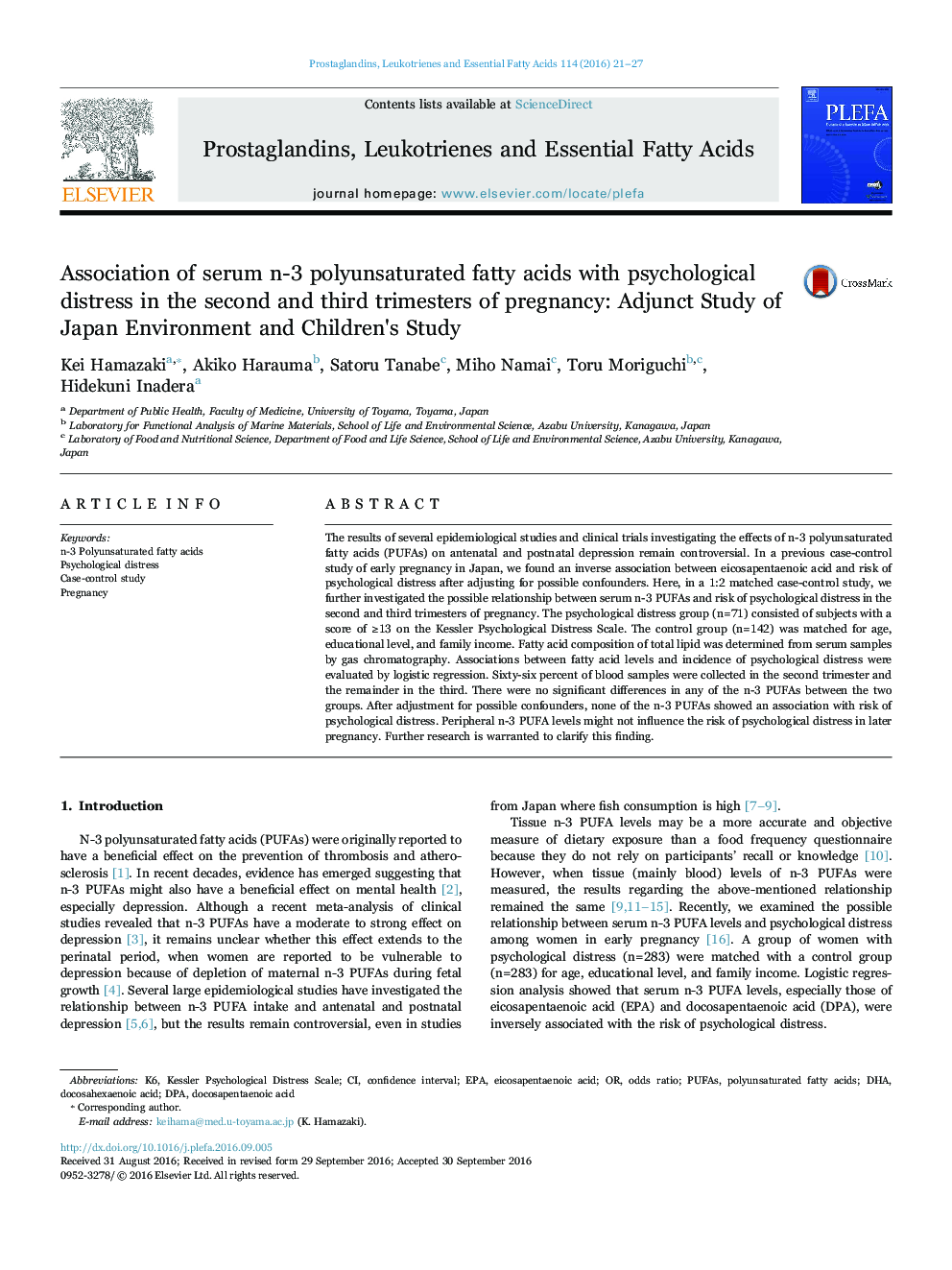| Article ID | Journal | Published Year | Pages | File Type |
|---|---|---|---|---|
| 5584919 | Prostaglandins, Leukotrienes and Essential Fatty Acids (PLEFA) | 2016 | 7 Pages |
Abstract
The results of several epidemiological studies and clinical trials investigating the effects of n-3 polyunsaturated fatty acids (PUFAs) on antenatal and postnatal depression remain controversial. In a previous case-control study of early pregnancy in Japan, we found an inverse association between eicosapentaenoic acid and risk of psychological distress after adjusting for possible confounders. Here, in a 1:2 matched case-control study, we further investigated the possible relationship between serum n-3 PUFAs and risk of psychological distress in the second and third trimesters of pregnancy. The psychological distress group (n=71) consisted of subjects with a score of â¥13 on the Kessler Psychological Distress Scale. The control group (n=142) was matched for age, educational level, and family income. Fatty acid composition of total lipid was determined from serum samples by gas chromatography. Associations between fatty acid levels and incidence of psychological distress were evaluated by logistic regression. Sixty-six percent of blood samples were collected in the second trimester and the remainder in the third. There were no significant differences in any of the n-3 PUFAs between the two groups. After adjustment for possible confounders, none of the n-3 PUFAs showed an association with risk of psychological distress. Peripheral n-3 PUFA levels might not influence the risk of psychological distress in later pregnancy. Further research is warranted to clarify this finding.
Keywords
Related Topics
Life Sciences
Biochemistry, Genetics and Molecular Biology
Clinical Biochemistry
Authors
Kei Hamazaki, Akiko Harauma, Satoru Tanabe, Miho Namai, Toru Moriguchi, Hidekuni Inadera,
